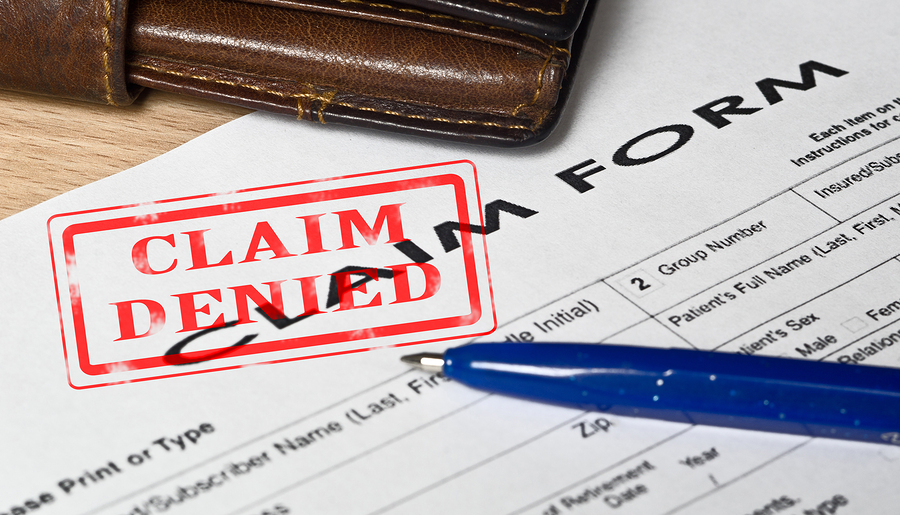What Is A Bad Faith Insurance Claim Denial?
 Michael Babboni
Insurance Coverage
“Bad faith” is a legal term in the United states to describe when an insurance company refuses your claim without reasonable cause. Usually, an insurance company has acted in bad faith if it does not fulfill their obligations listed in the insurance policy or does not follow Florida laws.
Michael Babboni
Insurance Coverage
“Bad faith” is a legal term in the United states to describe when an insurance company refuses your claim without reasonable cause. Usually, an insurance company has acted in bad faith if it does not fulfill their obligations listed in the insurance policy or does not follow Florida laws.What Are Some Examples of Bad Faith Denial?
Bad faith denials can include:
● Refusing to pay the money owed on your claim.
● Failing to conduct a satisfactory investigation into your claim
● Neglecting to pay your claim in a reasonable amount of time
● Requiring paperwork that is redundant or unreasonable
● Failing to explain why your claim was denied
Can You Receive Compensation For A Bad Faith Denial?
If you have a “Bad Faith” case you can be compensated for what the insurance company should have paid out in your initial claim. In addition you can recover “consequential” damages. These damages are a result of having your claim denied. These include your attorney’s fees and the cost of suing the company. You may also be able to recover for emotional distress. In addition to these damages you may also be able to ask for punitive damages if you can prove that the insurance company acted intentionally to avoiding compensation to the policy holder.
What Do You Do When You’ve Received A Bad Faith Denial?
First you will need to hire an attorney. It is very difficult to dispute a bad faith denial on your own. An attorney will review your case and determine when bad faith has occurred. This is done by examining some of the following:
● Your medical damages
● Total lost wages and future earnings
● How severe were you injured, pain and suffering
● Length of time you were hospitalized, immobilized and required rehabilitation.
● Surgeries and any disfigurement
● Any permanent impairment that will lead to future pain, suffering, and loss of enjoyment
How An Attorney Will Litigate A Bad Faith Denial
If your attorney feels you have a valid bad faith claim, they will file a claim. There is a one year statute of limitations on bad faith claims, so it is important you work with an attorney as soon as possible. The claim will usually state that the insurer failed to complete a proper, through investigation, failed to utilize common practices, did not follow Florida law, and did not provide a reasonable settlement.
The Discovery Phase Of A Bad Faith Claim
During the claim’s process an attorney will begin to collect information and interview relevant participants. This is called the Discovery phase. Your attorney will interview the claims adjuster and review both their investigation and evaluation of your case and their qualifications such as training in the industry, their work history and how they have handled other claims in the past. It is often in the discovery phase that your attorney will begin to interview experts in this field. These are people that work for multiple statewide or national insurers, they have extensive experience in negotiating and participating in other bad faith trials and are usually Board Certified.
What Happens If You Have To Take A Bad Faith Claim To Trial
There is a good chance your case will be settled before it goes to trial as the two parties negotiate and make offers and counter offers. The insurance companies are well aware that the jurors tend to sympathize with you. First off the defendant is an insurance company. Many people have had bad experiences with insurance companies or may be paying high premiums which makes the jury more biased. If your case does go to trial then both sides present their case and the jury or the judge will hand down the final judgement.
How The St. Pete’s Lawyer Can Help
If you believe you were denied payment on a covered insurance loss and the insurance company acted in bad faith, our experienced legal team will be happy to review your case and take the steps necessary to protect your rights. We prepare every case for trial and we have the experience and resources to deal with the most complicated insurance bad faith claims. We take on big insurance companies and hold them accountable for their failure to provide you the compensation you deserve. Call us today to schedule a free initial consultation.
